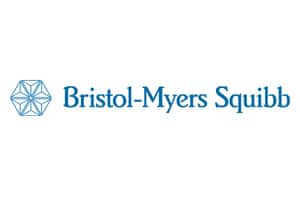 Bristol-Myers Squibb has reported data from the trial of PD-1 inhibitor Opdivo in head and neck cancer that was halted earlier this year.
Bristol-Myers Squibb has reported data from the trial of PD-1 inhibitor Opdivo in head and neck cancer that was halted earlier this year.
The CheckMate-141 trial was stopped in January after a significant benefit in overall survival was seen in patients treated with Opdivo (nivolumab) compared to conventional therapy left to the discretion of their clinicians.
At the American Association of Cancer Research (AACR) conference in New Orleans, the CheckMate-141 investigators revealed that Opdivo achieved a 30% reduction in the risk of death compared to treatment with standard therapy (methotrexate, docetaxel or cetuximab).
The 361-patient trial involved patients with recurrent or metastatic platinum-refractory squamous cell carcinoma of the head and neck (SCCHN), a notoriously hard-to-treat group. All told, patients on Opdivo had a median survival of 7.5 months, compared to 5.1 months for the control group.
After 12 months, 36% of the patients treated with nivolumab were alive compared with 17% of those assigned therapy of investigator’s choice.
BMS’ drug appeared to be effective regardless of the PD-1 status of tumours, or indeed if they were caused by human papillomavirus (HPV) infection, said lead investigator Maura Gillison of Ohio State University Comprehensive Cancer Centre.
“No therapy has been shown to improve survival for this patient population,” said Gillison. “New treatment options are desperately needed [and] this is the first randomized clinical trial to clearly demonstrate improved overall survival.”
The drug’s safety profile was also as expected, with treatment-related adverse events (TRAEs) seen in 59% of patients on Opdivo versus 77.5% of patients on the investigator-selected therapy.
“We are hopeful that this represents the tip of the iceberg with regard to future benefit of immunotherapy for patients with head and neck squamous cell carcinoma,” said Gillison. BMS is also testing the drug in earlier-stage head and neck cancer as well as in combination with other drugs.
CheckMate-141 was designed as a pivotal trial, suggesting that BMS may be able to move swiftly forward with regulatory filings for Opdivo in head and neck cancer, adding to its existing approvals in melanoma, non-small cell lung cancer and renal cell carcinoma.
It is behind rival PD-1 inhibitor Keytruda (pembrolizumab) in head and neck cancer however. Keytruda developer Merck & Co has already filed for approval in SCCHN in the US and has been awarded a priority review by the FDA, with a proposed review deadline of 9 August.




